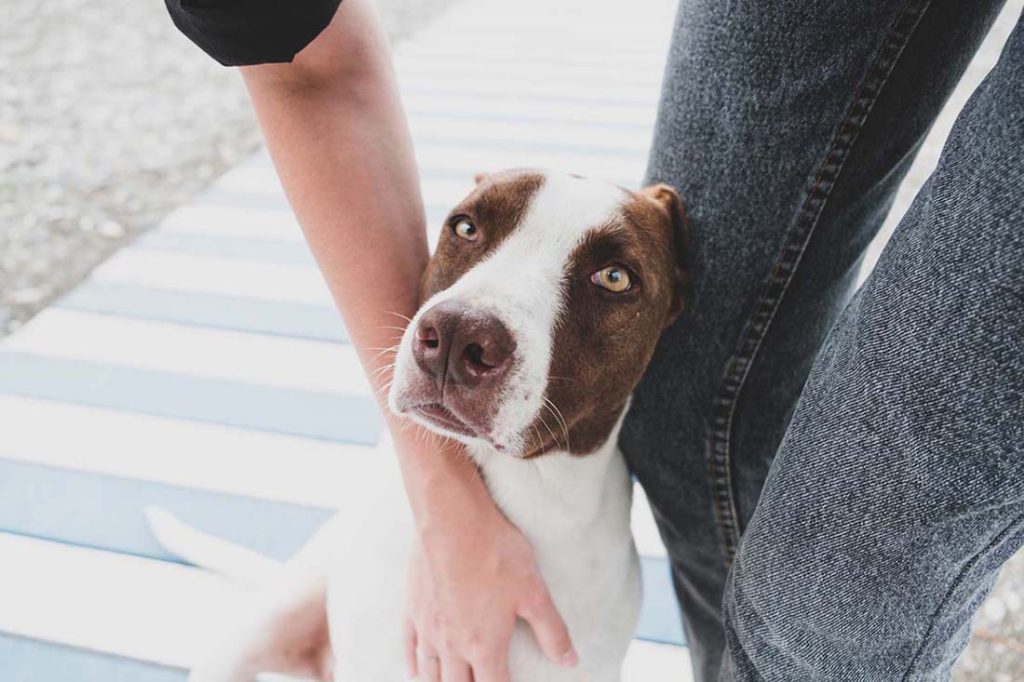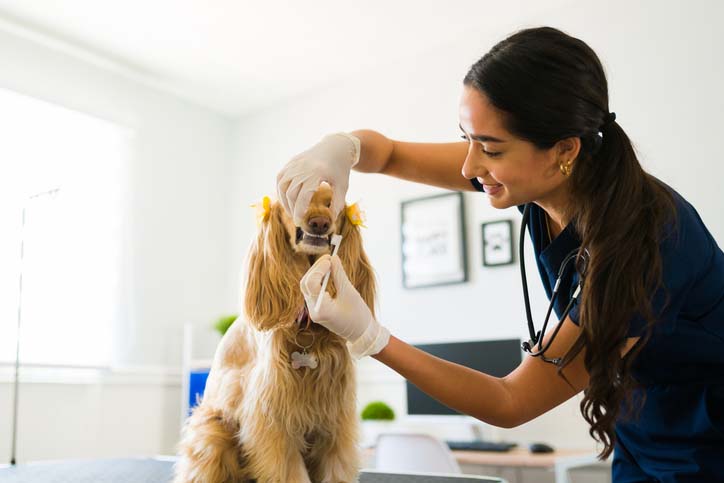How to Tell If a Dog Is Sick
Dogs have many physical and behavioral changes that can point to warning signs of illness. The trick is to know what’s normal for your dog and what could be a sign of something more serious.
If you’re concerned your pup seems “off,” you’re smart to pay attention. Every experienced pet parent knows behavior changes are one of the first warning signs of a potentially sick dog.
For example, instead of bounding up for a walk when you pick up the leash, your dog might raise his head and look at you before putting it back down with a sigh. If your dog seems more tired than usual or doesn’t want to eat, those are classic signs of a health problem.
Dogs have many physical and behavioral changes that can point to early warning signs of illness. The trick is to know what’s normal for your dog, what’s a mild concern, and what could be a sign of something more serious.
Doggie illnesses range from a mild upset tummy to heartworms, heart failure, and everything in between. For example, some dog breeds are prone to hip dysplasia, which causes hip problems and trouble walking. Puppies who haven’t received all their vaccinations are at risk of parvovirus, a common yet serious infection that spikes your pup’s fever and affects their appetite.
A lot of pet health depends on your dog’s age, lifestyle, breed, and medical history. Diet plays a big role, too, since nutrition is the foundation of health.
Before we share some common symptoms of dog health problems, here are a few common health problems in dogs.
Common Pup Sicknesses

Puppies receive a slate of vaccinations to protect them from parasites like heartworm and serious infections like parvovirus, aka “parvo.” Parvo is wildly contagious and most often affects puppies under four months of age who haven’t received the vaccination yet. Parvo causes a high fever and loss of appetite.
If your pup is a social animal and enjoys doggie daycare or is otherwise around other dogs, they could be at risk for kennel cough or canine flu. For this reason, most dog boarding facilities and doggie daycares require a kennel cough vaccination if your dog hasn’t already had it.
Many illnesses can affect dogs, too. More senior dogs can face thyroid problems, heart disease, and Cushing’s Disease. Each of these can affect your dog’s appetite, thirst level, and energy level.
Fortunately, if you keep up with your best friend’s regular check-ups, your veterinarian can spot potential health problems early. You can help your veterinarian by keeping an eye on any physical or behavioral changes in your dog and sharing this information at your check-ups.
7 Common Signs Your Dog Is Sick

Your pup won’t text you to let you know they’re feeling crummy, but you know your best friend.
If your normally rambunctious young lab suddenly has a loss of appetite and seems lethargic, then you know something’s wrong. However, other health issues are less obvious. Take the elder who’s having trouble walking; it’s easy to chalk that up to arthritis, and maybe it is, but it could be a symptom of heart failure.
When pet parents know these common symptoms, you’re better prepared to identify poor pet health and know when you need to call the animal hospital.
1. Vomiting and Diarrhea
Tummy troubles are one of the most common reasons for sick dogs. If you have a pup who’s prone to dumpster diving or eating anything within reach, it’s normal for them to experience an upset tummy, and you’re probably familiar with this routine. Run-of-the-mill tummy troubles usually sort themselves out after a few hours, but if it seems unusual, it’s worth a call to your veterinarian.
Medication, a new supplement, or new dog food can all lead to tummy troubles. So, if you introduce something new and see a negative reaction, pay attention. If it’s a new food, then dial back the amount of the new food you’re feeding and revert to the old with only a little of the new mixed in. Add a little more new food each day as long as your dog is handling it until you’ve completely transitioned to the new food.
You know your dog. The occasional upset tummy probably isn’t cause for concern, but chronic vomiting and diarrhea mean your dog needs medical treatment. It could be a symptom of poisoning if the vomiting is paired with drooling or excessive thirst. Don’t hesitate to call your animal hospital right away for emergency help.
2. Urination Problems
If your dog’s potty habits change, pay close attention. Maybe your dog is urinating more than usual or strains to urinate but only releases a trickle. That could be a sign of a urinary tract infection. If your dog doesn’t seem to have to urinate when they normally do, make sure they’re drinking enough water.
Blood in the urine is another sign of doggie health issues. Particularly in senior dogs, urine with blood could mean your dog has diabetes mellitus, kidney stones, or kidney disease. Don’t waste any time making a veterinarian appointment, and if you can, take a urine sample with you for evaluation.
4. Appetite Changes
Does your dog seem hungrier than usual? Or maybe your chowhound stops eating as much. Changes in appetite can mean:
- Your dog doesn’t like the dog food.
- Toothache or other dental problems. Maybe it hurts to chew.
- A run-of-the-mill tummy upset.
- Serious health problems like pancreatitis, kidney disease, thyroid issues, or diabetes mellitus.
Unexplained weight loss or gain is a common symptom of health issues and is a sign for pet parents to schedule checkups. Additionally, if your dog’s drinking habits change, that’s another sign of a potential health problem. Not drinking water or excessive thirst are signs to schedule an animal hospital appointment.
4. Respiratory Problems
An occasional sneeze or cough isn’t worrying, but frequent sneezing, wheezing, or coughing could indicate respiratory problems.
Your dog could be allergic to dust or other environmental factors. Or, your furry friend could have kennel cough, canine flu, or another illness.
5. Behavioral Changes
Your dog’s behavior is one of the most common warning signs of a sick dog. Behavior changes can include common symptoms like fatigue, excessive thirst, appetite changes, and even hair loss.
Your dog’s behavior is one of the most common warning signs of a sick dog. Behavior changes can include common symptoms like fatigue, excessive thirst, appetite changes, and even hair loss. If your normally active floof seems unexcited about walks or playtime, take note. Ask yourself if your dog’s appetite and thirst seem normal and if there are any other signs they’re feeling poorly.
Other behavior changes can include normally friendly dogs who suddenly growl or bare their teeth at you or others. These are all signs that something is off with your pet’s health.
6. Signs of Dental Disease

Good oral care is health care, so it’s important to brush your dog’s teeth regularly. Even if you don’t brush them yourself, it’s a good idea to check your dog’s teeth and gums regularly.
Healthy gums are a pink color. If your dog has pale gums or they’re turning grey, call the animal hospital right away. This could be a symptom of shock, anemia, or a heart problem.
And while dogs are famous for bad breath, if your dog’s breath is exceptionally bad, then you want to schedule a checkup because it can be a symptom of something serious.
7. Skin Problems
If your dog is always licking a specific area, that can lead to irritated skin, hair loss, and hot spots. It’s also a common symptom of skin conditions. Ruling out fleas, your floof could have an allergy to something he’s eating or something in the environment.
Notice where the skin problems persist and see if you can draw any connections between food or space. It’s always a good idea to wash pup bedding, groom your dog, and consider a diet change. Many times, upgrading your dog’s diet results in healthier skin and coat within a few weeks.
Anytime you notice changes in your dog, it’s a good habit to note the date and what you noticed in your phone’s notes app. That way, when you go in for check-ups, you can share useful information with the veterinarian. You know your dog. You can often improve your furry friend’s well-being with regular check-ups, regular exercise, and a healthy diet.
This content is for informational use only and does not replace professional nutrition and/or medical advice, diagnosis, or treatment. It is not a substitute for and should not be relied upon for specific nutrition and/or medical recommendations. Please talk with your veterinarian about any questions or concerns.







